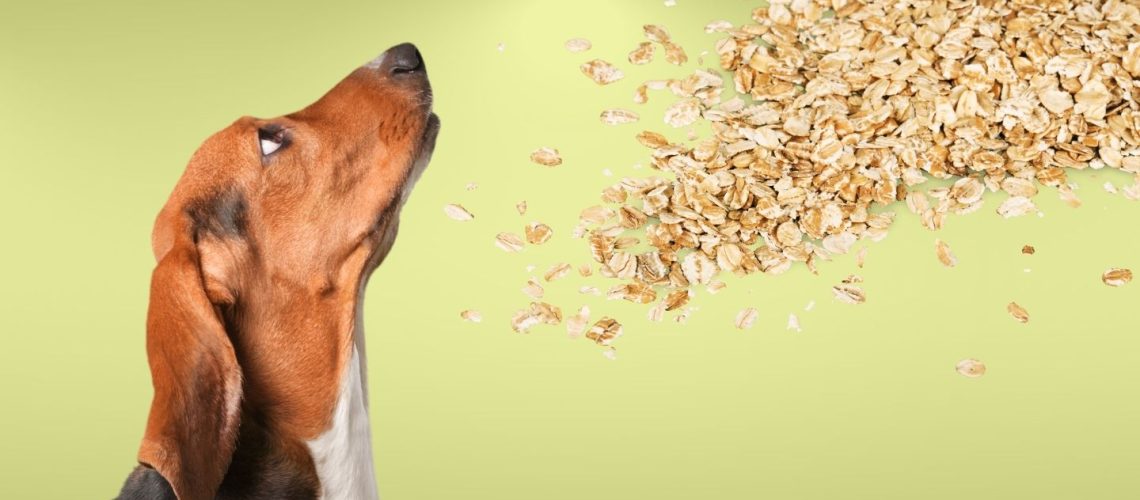Yes, dogs can eat oats. Oats are a healthy, high-fiber food that can be a beneficial addition to your dog's diet. However, it's important to serve them cooked and in moderation to prevent any potential risks or side effects.
Understanding Oats
Oats are a type of whole grain cereal that is commonly consumed as a breakfast food. They are versatile and can be used in various recipes and dishes.
Can Dogs Eat Oats?
Yes, dogs can safely consume oats in moderation. They provide several health benefits due to their high nutritional value.
The Nutritional Value of Oats for Dogs
Oats offer various nutritional benefits for dogs, such as:
Fiber Content
Oats are a great source of dietary fiber, which can help with digestion and weight management in dogs.
Vitamins and Minerals
Oats contain essential vitamins and minerals, such as vitamin B, iron, and zinc, which contribute to your dog's overall health.
Omega-6 Fatty Acids
Oats contain a type of omega-6 fatty acid known as linoleic acid, which is beneficial for maintaining a healthy and strong skin and coat in dogs.
The Health Benefits of Oats for Dogs
Feeding oats to your dog can provide several health benefits, including:
Improved Digestion
The high fiber content in oats can contribute to improved digestion and regular bowel movements in dogs.
Healthy Skin and Coat
Linoleic acid found in oats helps promote healthy skin and a shiny coat in dogs.
Weight Management
The fiber in oats can help your dog feel fuller for longer, making it a helpful addition to their diet for weight management.
Antioxidant Properties
Oats are rich in antioxidants, which can help protect your dog against certain diseases and boost their immune system.
How to Properly Serve Oats to Your Dog
To ensure your dog reaps the benefits of oats, follow these tips:
Cooked vs. Raw Oats
Always serve cooked oats to your dog, as raw oats can be difficult to digest and cause digestive issues.
Portion Size and Frequency
Feed oats to your dog in small amounts as a treat or mixed into their regular food. Oats should not make up a significant portion of their diet.
Choosing the Right Type of Oats
Choose high-quality, organic oats to prevent your dog from consuming any harmful substances, such as pesticides.
Mixing Oats with Other Foods
You can mix cooked oats into your dog's regular food or serve them as a tasty treat.
Precautions and Potential Side Effects
Some potential risks and side effects of feeding oats to your dog include:
Allergies or Sensitivities
Some dogs may have allergies or sensitivities to oats. If you notice any adverse reactions, stop feeding oats to your dog and consult your veterinarian.
Choking Hazards
Oats can be a choking hazard for small dogs. Make sure to feed oats in small pieces to prevent choking.
Pesticides and Contaminants
Non-organic oats may contain harmful substances, such as pesticides. Always choose organic oats when feeding your dog.
Overconsumption
Excessive consumption of oats can lead to digestive issues and weight gain. Feed oats in moderation.
Alternatives to Oats for Dogs
If oats are not suitable for your dog, consider these alternatives:
Barley
Barley is another whole grain that is safe and beneficial for dogs.
Rice
Rice is a low-fiber grain that can be easily digested by dogs.
Quinoa
Quinoa is a protein-rich and gluten-free grain that can be a nutritious addition to your dog's diet.
Sweet Potatoes
Sweet potatoes are a high-fiber, low-fat, and vitamin-rich alternative to oats.
Conclusion
Oats can be a nutritious and tasty addition to your dog's diet when served cooked and in moderation. Always consult with your veterinarian before adding any new ingredients to your dog's diet, and monitor for any potential allergies or sensitivities. The key is to provide a balanced and varied diet to ensure your dog gets all the essential nutrients they need.






